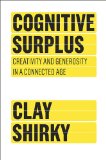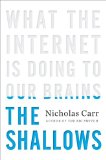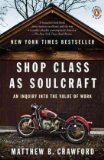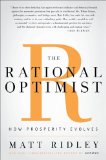new book – ‘Hamlet’s BlackBerry: A Practical Philosophy for Building a Good Life in the Digital Age’
July 11, 2010
Hamlet’s BlackBerry: A Practical Philosophy for Building a Good Life in the Digital Age by William Powers (Harper, 2010). (Kindle ed), (link for amazon.co.uk)
A crisp, passionately argued answer to the question that everyone who’s grown dependent on digital devices is asking: “Where’s the rest of my life?”
At a time when we’re all trying to make sense of our relentlessly connected lives, this revelatory book presents a bold new approach to the digital age. Part intellectual journey, part memoir, Hamlet’s BlackBerry sets out to solve what William Powers calls the conundrum of connectedness. Our computers and mobile devices do wonderful things for us. But they also impose an enormous burden, making it harder for us to focus, do our best work, build strong relationships, and find the depth and fulfillment we crave.
Hamlet’s BlackBerry argues that we need a new way of thinking, an everyday philosophy for life with screens. To find it, Powers reaches into the past, uncovering a rich trove of ideas that have helped people manage and enjoy their connected lives for thousands of years. New technologies have always brought the mix of excitement and stress that we feel today. Drawing on some of history’s most brilliant thinkers, from Plato to Shakespeare to Thoreau, he shows that digital connectedness serves us best when it’s balanced by its opposite, disconnectedness.
Using his own life as laboratory and object lesson, Powers demonstrates why this is the moment to revisit our relationship to screens and mobile technologies, and how profound the rewards of doing so can be. Lively, original, and entertaining, Hamlet’s BlackBerry will challenge you to rethink your digital life.
See also: Author’s website







